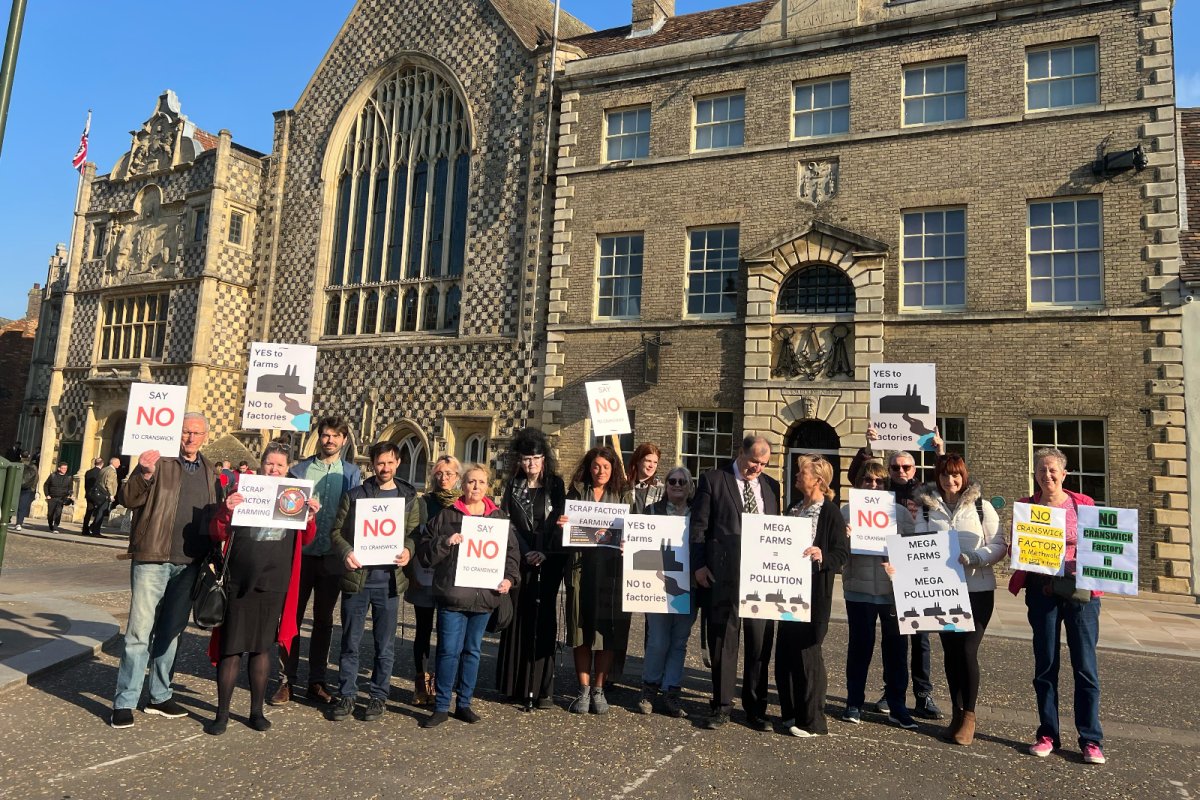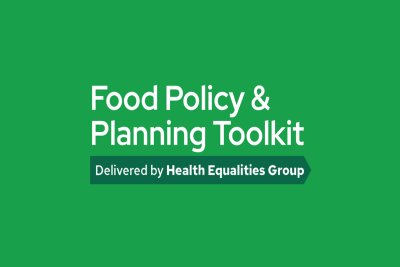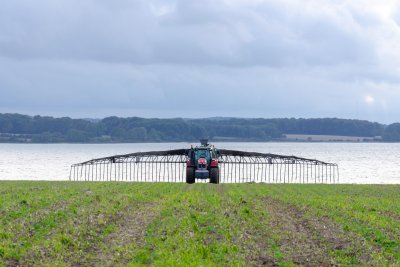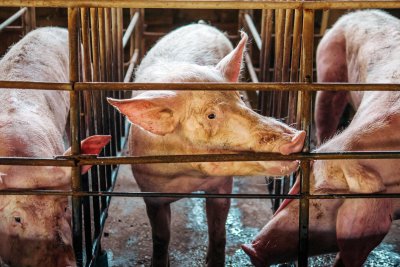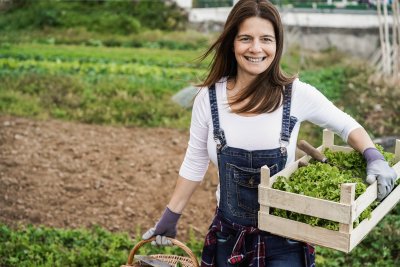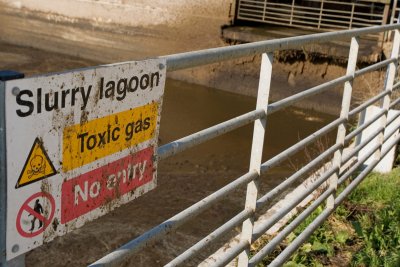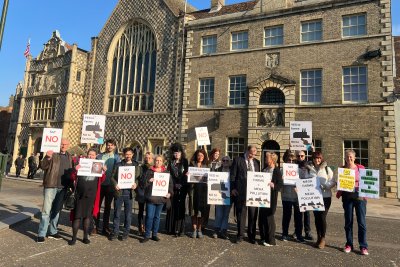 Campaigners await decision outside King’s Lynn and West Norfolk Council. Copyright: Lily O'Mara
Campaigners await decision outside King’s Lynn and West Norfolk Council. Copyright: Lily O'Mara
Rejection of Norfolk megafarm marks turning point for industrial livestock production in the UK
The planning application for an industrial megafarm in Norfolk has been rejected in a landmark decision that could shape the future of industrial farming and bolster councils and rural communities in their fight against harmful environmental practices in their areas.
Failure to include information on full direct and indirect greenhouse gas emissions in the application was considered grounds for rejection by King’s Lynn and West Norfolk Council’s planning experts, in what will be a significant boost for climate campaigners but a damning indictment for UK megafarms. The outcome follows widespread public outcry, over 15,000 objections to the development going ahead and growing concern about the damaging impacts of industrialised farming on the environment, animal welfare, and rural communities.
In rejecting the application, the committee followed the recommendations of the council's planning experts, who last week advised that the facility should not go ahead, and that the council could face legal challenges if approved. As part of their 200-page report, the council’s planning officers advised that a landmark climate change ruling was applicable to the Methwold megafarm application, meaning the full direct and indirect greenhouse gas emissions must be assessed transparently and taken into account when making this planning decision. They advised that failure to include this information in the application was grounds for rejection.
In doing so, the planning officers agreed with legal testimony provided by environmental charity Feedback and Sustain, the alliance for better food and farming, as part of the consultation process. The organisations argued that the polluting emissions from the facility would be significant, unnecessary, unacceptable and incompatible with the UK’s legally-binding climate targets, and that without comprehensive emissions information the application is unlawful.
The planning officers also recommended rejecting the application on the grounds that it failed to provide clarity on how waste (especially pig manure) would be disposed of to prevent pollution to the air and water. The committee was also further advised that the facility risked impacting sites protected for nature conservation.
Lily O’Mara, Climate Campaigner at Sustain said:
“Local authorities are waking up to the reality of industrial farming: a damaging and extractive system of food production that poses a serious threat to human health and our country's future, both economically and environmentally. King’s Lynn and West Norfolk Council has rightly put nature and communities first by saying no to a development that would have sent us in completely the wrong direction.”
Phil Holtam, Programmes Manager at Feedback, said:
“We welcome this decision that has rightly recognised the significant and inevitable environmental and climate impact of the mass production of meat. Cranswick’s plans would have caused upstream emissions that we cannot afford if we are to meet Net Zero targets. There is a better way to provide food security and decent agricultural livelihoods in the UK, factory farming is not the answer.”
The developer, Cranswick PLC, is one of the UK’s largest intensive chicken and pig producers and behind a number of the UK’s livestock ‘megafarms’, whose number has increased by one-fifth since 2016, according to Compassion in World Farming. The growth in intensive livestock farming has been accompanied by a decline in the health of the UK’s rivers, and intensive agriculture is now the main source of river pollution in the UK. Cranswick has been the subject of complaints and enforcement in action, including extreme ammonia pollution. In February, an investigation revealed that several farms owned by Cranswick trading entities had breached environmental regulations at least 90 times in the last seven years in East Anglia.
Objectors to the application noted that the increase in this kind of automated intensive livestock system, which is replacing smaller and more traditional family farms, is estimated to have already cost 14,000 jobs in the UK. Focus on Labour Exploitation (FLEX) has reported widespread use of insecure, seasonal migrant labour in the poultry sector, as well as trafficking, and risks of infringement of employment rights. In 2024, over 100,000 people called on the government to support a campaign led by UK family farmers to halt the intensification of farming, which they said was risking the livelihoods of farmers for the benefit of agribusinesses.
Sustain: Sustain The alliance for better food and farming advocates food and agriculture policies and practices that enhance the health and welfare of people and animals, improve the working and living environment, enrich society and culture and promote equity.
Sustain
The Green House
244-254 Cambridge Heath Road
London E2 9DA
020 3559 6777
sustain@sustainweb.org
Sustain advocates food and agriculture policies and practices that enhance the health and welfare of people and animals, improve the working and living environment, promote equity and enrich society and culture.
© Sustain 2025
Registered charity (no. 1018643)
Data privacy & cookies
Icons by Icons8
